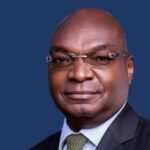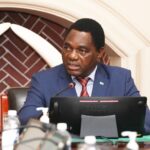Reverend Pukuta Mwanza was a significant figure in Zambia’s religious landscape and a passionate advocate for social justice. As the leader of the Evangelical Fellowship of Zambia (EFZ), he made a lasting impact on his community and the country as a whole. Here are 20 key facts about Reverend Mwanza’s life and legacy:
- Early Life and Education: Pukuta Mwanza was born on June 15, 1961, in Zambia. He pursued his education at the University of Zambia, where he studied theology and developed a strong foundation in his faith.
- Ordination: Reverend Mwanza was ordained as a minister, dedicating his life to serving God and the Zambian community through the church.
- Evangelical Fellowship of Zambia: He served as the General Secretary of the Evangelical Fellowship of Zambia, a role that allowed him to lead and influence the country’s evangelical community.
- Social Justice Advocacy: Mwanza was a vocal advocate for social justice, often addressing issues such as poverty, inequality, and human rights in his sermons and public appearances.
- Interfaith Dialogue: He promoted dialogue and cooperation among different religious groups, believing in the power of unity to address social challenges.
- Community Development: Reverend Mwanza was actively involved in community development projects, working to improve education, health care, and economic opportunities for marginalized populations.
- Youth Empowerment: He emphasized the importance of empowering the youth, encouraging them to take leadership roles in their communities and the church.
- Health Awareness: Reverend Mwanza was committed to health awareness initiatives, particularly in combating HIV/AIDS and other public health issues in Zambia.
- Education Advocate: He believed education was key to social progress and often collaborated with educational institutions to promote learning and capacity building.
- Public Speaking: Known for his eloquence and charisma, Mwanza frequently spoke at conferences, churches, and community events, inspiring many with his messages of hope and action.
- Media Engagement: He utilized various media platforms to share his views on faith, social issues, and the importance of community involvement.
- Political Engagement: While remaining non-partisan, he was actively engaged in political discussions, advocating for policies that aligned with Christian values and promoted social justice.
- Mentorship: Reverend Mwanza served as a mentor to many young pastors and community leaders, encouraging them to pursue their calling and serve with integrity.
- Recognition and Awards: His dedication to social justice and community service earned him numerous awards and recognition from various organizations and institutions.
- Global Outreach: He represented Zambia in international forums, sharing insights on the role of faith in addressing social challenges and advocating for human rights.
- Legacy of Service: Mwanza’s commitment to serving others and advocating for justice left a lasting legacy in Zambia, inspiring future generations of leaders and activists.
- Support for Vulnerable Groups: He was particularly concerned about the plight of vulnerable groups, including women and children, and worked tirelessly to address their needs.
- Focus on Ethical Leadership: Reverend Mwanza emphasized the importance of ethical leadership, calling on leaders to act with integrity and accountability in all areas of life.
- Personal Faith Journey: His own faith journey was characterized by a deep commitment to prayer and a desire to understand and follow God’s will for his life and community.
- Death and Legacy: Reverend Pukuta Mwanza passed away on April 2, 2020. His death was a significant loss for the Zambian community, but his teachings and commitment to service continue to inspire many.
Reverend Pukuta Mwanza’s life and work exemplified the intersection of faith and social activism, demonstrating how one person’s dedication can lead to meaningful change. His legacy as a leader, mentor, and advocate for social justice remains a guiding light for many in Zambia and beyond.






